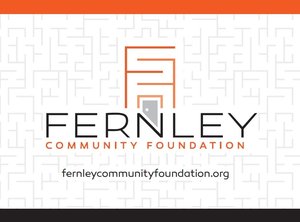‘Job One’ for Assemblywoman Tolles is to make sure GOP education gains of 2015 are not undone in 2017
January 12, 2017 – By Ray Hagar, Nevada Newsmakers
When the Republicans had the majority in both houses of the 2015 Nevada Legislature, the GOP was able to push through a menu of education reforms.
Democrats, who will be in control of both houses when the 2017 Legislature begins in February, have vowed to undo some of those.
So “Job One” at the 2017 session for incoming Assemblywoman Jill Tolles, R-Reno, is to help make sure the Legislature’s work in 2015 is not undone in 2017.
“We need to keep the reforms that were put in place,” Tolles said during an interview on Nevada Newsmakers. “There was some mighty, mighty good work done this last session and we need to continue to support those programs to make sure they have time to work and I believe they will.”
Atop the list of GOP gems from 2015 that may have a short lifespan under Democratic control is the Education Savings Accounts bill.
The controversial program allows parents who want to move their children from public to private schools up to $5,000 annually per child to pay for tuition, tutoring, books or other education-related expenses.

After passing on party lines in 2015, the ESA’s system of allocating the money to parents from the state’s Distributive School Account was deemed unconstitutional by the Nevada Supreme Court; so it needs to be resubmitted to the 2017 Legislature.
Gov. Brian Sandoval has reportedly put funding for the ESA program into his proposed budget. However, using public funds for private schools is generally opposed by Democrats
Tolles supports the ESA concept although she has not seen what form a possible bill might take.
“I think we will get the details of what that might look like when we get into the session,” she said. “But I am absolutely for education savings accounts as opportunities for families to take advantage and choose to move away for the ‘one size fits all’ (public-school model).”
Some Democrats see the ESA program as a taxpayer giveaway to relatively well-off families who can afford private schools or are already sending their children to them.
The Reno Gazette-Journal reported that its analysis of the first 3,000 applicants last year showed that 80 percent of them live in neighborhoods where median household incomes are higher than the state median of $51,000.
Lawmakers need to solve the question of establishing wealth criteria (or lack a family’s lack of it) for those who would be eligible, Tolles said.
“In that discussion, it is going to be really important to avoid the extremes,” Tolles said. “For one side to think that school choice is going to answer all the problems and that we should forget about public schools, I think that is an error. We have a moral responsibility to take care of the vast majority of our kids who are in (public) school.
“On the other side, there is a stereotype that only rich families are taking advantage of this but there are (less-fortunate) families that really could use the benefit of school choice and it is the right choice for their child,” she said.
Tolles sees ESAs and the private schools they could support as healthy competition for Nevada’s public school system.
“Also, bringing in competition, I remember watching the show where our superintendent, of the Washoe County School District, said, ‘Bring it on,'” Tolles said. “There are absolute benefits in bringing that competition and bringing that (school) choice into the equation. So I am looking forward to having that discussion.”
Tolles, who won the District 25 election with almost 61 percent of the vote, is replacing former Assembly Minority Leader Pat Hickey as the District 25 representative.
Tolles said she did not sign the “No New Taxes” pledge, which has proven somewhat to be a line of demarcation between the right wing and moderate factions of the Republicans in the Assembly.
“No, I didn’t (sign it) and it is not because I am anxious to go out there and raise any taxes,” she said. “But I do consider myself to be a fiscal conservative, so I’ll always look for ways to keep government limited and as efficient as possible.”




